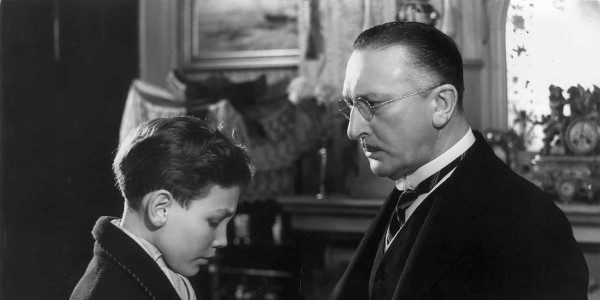“Let Right Be Done!”

A classic film’s lesson in liberty
July 21, 2017
May I recommend one of my candidates for the Ten Greatest Movies list—The Winslow Boy? What the 1948 British film (not David Mamet’s 1999 remake) has going for it is a brilliant director, Anthony Asquith—who ranks with such luminaries as Carol Reed, Alfred Hitchcock, John Huston, or Jean Renoir—and a stellar cast, which includes some of the most skilled actors in movie history, from Cedric Hardwicke on down, all at the top of their form. But above all these advantages, the movie’s animating spirit is its script, by Terrance Rattigan and Anatole de Grunwald from Rattigan’s play, which grippingly dramatizes a principle at the very heart of Anglo-Saxon liberty—a principle that today’s America badly needs to relearn.

The story, set in 1912—when director Asquith’s father, H. H. Asquith, was Britain’s Liberal prime minister, and World War I was brewing—is simple, and it won’t spoil the movie for you if I sketch its outline. Twelve-year-old Ronnie Winslow gets expelled from Osborne, the prestigious boarding school for cadets headed for Royal Navy commissions, for allegedly stealing five shillings. Though the sum is trivial, the alleged breach of the code of officers and gentlemen is not. His father, Arthur, a newly retired Wimbledon bank manager played by Hardwicke, solemnly asks him if he is guilty—twice—and when the boy twice asserts his innocence, his father, who raised him to tell the truth, vows to vindicate the boy’s honor, whatever the cost.It proves immense. In his quest, which lasts until after Ronnie turns 14, Arthur sacrifices his health, much of his savings, and the happiness and future of his solidly respectable and eminently likable upper-middle-class family. He meets obstacles at every point. The school’s commandant tells him that, as he had no doubt of Ronnie’s guilt after hearing the details of the theft, he has no second thoughts about summarily expelling the boy, without any formal procedure or even someone to advise Ronnie or speak in his defense. He won’t reconsider the evidence or say what it was. A visit to the Admiralty Commission to threaten a lawsuit gains Arthur only a haughty declaration that he needn’t bother: a subject of the king can’t sue the king’s representatives, for the law holds that the king can do no wrong.
True enough, his solicitor tells him; but nevertheless Magna Carta, the thirteenth-century charter of English liberties, declares that “no subject of the King may be condemned without a trial,” so perhaps Arthur should ask his MP to denounce the wrong done to Ronnie in Parliament. Good advice: for the MP, seeing a chance to win favorable press as a defender of justice, is glad to oblige. Reporters readily take the bait and make the Winslow case a national cause célèbre.
The uproar catches the interest of Sir Robert Morton, England’s most eminent—and expensive—barrister, masterfully played by Robert Donat as a complex mix of eloquence, cold hauteur, ruthless intelligence, and deep but hidden feeling, a legal version of Jane Eyre’s Mr. Rochester. Morton drops in at the Winslows’ house on his way to dinner with a duchess, politely introduces himself, and mercilessly cross-examines Ronnie, until the boy stammers with confusion and his family (along with the audience) wonders if he’s been telling the truth. But after such browbeating, the great man abruptly announces that he’ll take the case, for he thinks Ronnie is innocent. Continue reading
